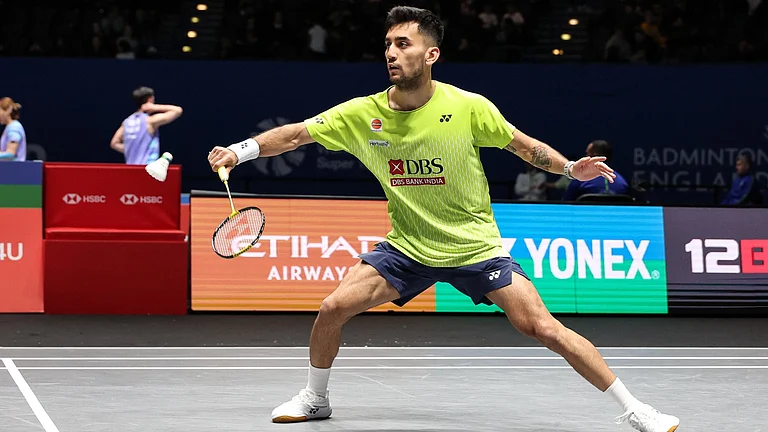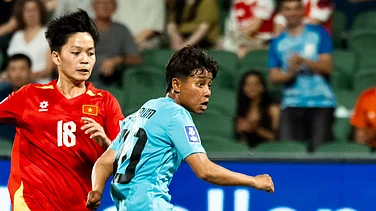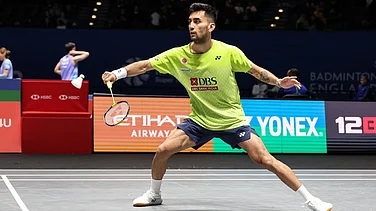When Sujith Somasundar retired from cricket in 2007, he quoted Confucius. (More Cricket News)
"It (retirement) was a tough decision," Somasundar said. "But, to quote Confucius, you need to change your profession every 15 years to retain your passion, motivation and commitment."
So, after a fine career in which he was instrumental in two of Karnataka’s Ranji Trophy wins, and even earned the India ODI cap, Somasundar pursued his interest in coaching and psychology. Following an innings at Wipro as a leadership trainer, and some other assignments, he is now head of education, BCCI-NCA (the cricket board’s National Cricket Academy) in Bengaluru.
In the last few years, mental health has become a priority in cricket. But there also are dismissive attitudes towards it. Recently, Kapil Dev described “pressure” and “depression” as “American terms”.
Besides, the principles of handling pressure are simple in theory. For example, don’t worry about the result. But they are hard to implement.
Somasundar provides some answers in this interview.
What is your view of the comments made by Kapil Dev recently, when he appeared to make light of pressure and depression as “American terms”, in other words, elite, new-world conditions?
I would not like to comment on the 'American terms' part. But the gist of what Kapil Dev said was if you have passion, and if you enjoy what you do, there should be no pressure. He simplified it to an extent.
Sports psychologists try to do the same by reminding sportsmen by asking “Why did you start playing cricket, or any sport?” It’s because you loved it and enjoyed it. This, they do to shift the focus from the result of a match/event to the reason why you play, which is not always to succeed, not always to score well, not always for validation, but because you derive a lot of pleasure from playing and competing.
Pressure comes when the result becomes your primary focus, rather than the enjoyment of engaging in an activity or the game. These days there are so many eyeballs on a game, so many channels and avenues for people to comment and judge you. It is not an easy thing to be measured and evaluated constantly in public. This makes one attach a lot of significance to winning, and thereby invite stress and pressure.
Exactly. In theory it is easy to say “I will not worry about the result”. Not so in actuality.
The world recognizes success. No one says, “So-and-so played a fantastic innings and scored 10 runs.” Sport is watched to see who wins. So yes, when you go out and compete, it’s all about wanting to win.
The point is, the ones who are able to focus on what they need to do in order to be successful, are the ones who will be able to increase their chances of success.
As Head of Education, BCCI-NCA, and as a former player and a mind coach, is that what you tell young players?
We always try to understand what is causing the pressure. One of the biggest causes of stress is the pressure of expectations. And expectations are always about result. So what we remind players is, rather than getting attached only to the result, get committed to the process. To the small details that are in one’s control, such as watching the ball or keeping a balanced stance etc, that will lead to the result you want.
What are some of the other steps the BCCI is taking to help players with mental health?
We appoint professional sports psychologists to work with players, especially during our NCA High Performance Camps.
It also needs to be understood that clinical conditions such as depression come under the ambit of Clinical Psychology / psychiatry, and not a psychologist. But if a player wants to seek help, that access is there at the NCA. Absolutely.
Do you have programs for women cricketers as well?
We have appointed a sports psychologist for the Indian Women’s team (Mugdha Bavare). Like I said, if a player, male or female, wants to reach out for help with a mental issue, they can.
What were the challenges in your playing days in the Nineties, how did you manage them?
When we were playing, things weren’t as scientific and structured as they are today, whether in terms of coaching or mentorship. Sports psychology was a taboo, and it still is not that open. People even today don’t come up and say, “Hey, I’m working with a psychologist”, as easily, and proudly, as they might say, “I have a personal strength and conditioning coach”.
In those days, openly discussing the psychological aspect was rare. It was all up to me. If I was lucky enough to speak to a senior player or coach and get things sorted, or if I started doing well and my confidence came back, I felt better. That’s how it was.
Trolling on social media is a major cause of players’ mental health struggles. Yet, many of them stay on social media, because it’s also a huge revenue stream. Do you see double standards there?
You live by the sword and you die by the sword, right? If you don’t know how to balance, it, and not overdo it, you will be the victim of it. If you choose the action, you choose the consequence also. That’s true in every walk of life.
So, if you want to leverage your social media presence, you must also be open to the consequences, or learn to ignore the trolling. I feel if you are going to use social media for everything, maybe you are stretching it too far.
Do you categorically tell players to limit social media use?
Not in as many words. We can only tell them what could be the consequences of it - that it can bring pressure and judgment their way - and remind them of the importance of maintaining a certain balance in their social media use.






















